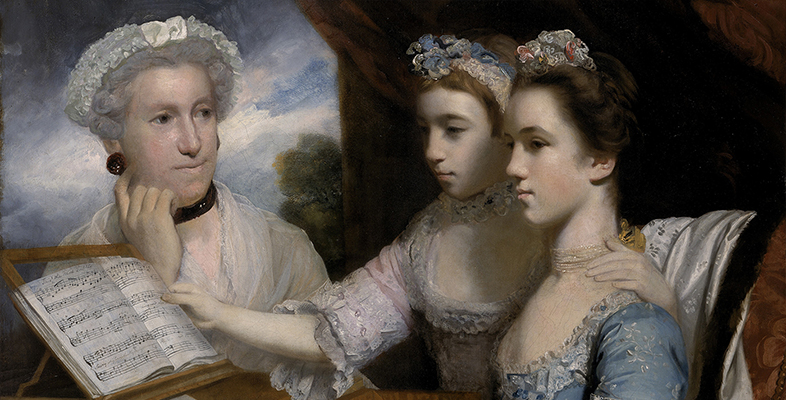4.5 Meanings of V-Disc music
To demonstrate the meaning invested in V-Discs by the troops, you are going to look at two popular songs of the time. These have been selected from the huge range of repertory made available through the programme as they might have held particular resonance for the American servicemen.
Activity 14
Listen to extracts from the following two songs (some details of each song’s context are provided):
- ‘You’ll Never Walk Alone’ (Track 4 [Tip: hold Ctrl and click a link to open it in a new tab. (Hide tip)] ), performed by Frank Sinatra. This song is originally from the Broadway musical Carousel (1945) by Rodgers and Hammerstein, where it is first performed by Nettie Fowler to comfort Julie Jordan after her husband commits suicide. It is sung again at the end of the musical, to give hope for the future at the graduation ceremony of Julie’s daughter Louise (Hischak, 2007, p. 322). The song was hugely popular beyond the musical; following the release of the soundtrack of the Broadway production, Sinatra was the first artist to record the song (Columbia Records, Los Angeles, 1 May 1945), which reached ninth place in the Billboard chart of September 1945, and was issued on V-Disc in November 1945 (Sears, 1980, pp. 809, 1107).
- ‘Beyond the Blue Horizon’ (Track 5), recorded by Martha Tilton (1915–2006) at the RCA Victor Studios, New York, on 10 May 1945 and released on V-Disc in October that year (Sears, 1980, pp. 887–8, 1106). The song was also originally written for a musical: the film Monte Carlo (dir. Ernst Lubitsch, 1930). In the film, the song is performed by a countess (played by Jeanette MacDonald, 1903–1965) who leaves her wealthy fiancé and flees to Monte Carlo. She performs the song while on the train to Monte Carlo, waving to farmers in the fields who join her in song. In the musical, the song reflects the countess’s strength and her determination to overcome her financial difficulties. This theme was especially relevant to the American audience at the time of the film’s release during the Great Depression. MacDonald’s recording of the song was a top-ten hit in the USA (Furia and Lasser, 2006, p. 83; Bradley, 1996, p. 258).
How might overseas troops have interpreted the lyrics and mood of these songs?
Discussion
Both songs would have provided the servicemen with a musical link to America and a message of support from home. During the difficult period of the war and its immediate aftermath, the songs would have been invested with very personal meanings by listeners, which went beyond the original context and characters of each musical. Both songs retain the feelings conveyed in their settings in the two musicals: ‘You’ll Never Walk Alone’ communicates comfort in a rather sentimental way, while ‘Beyond the Blue Horizon’ is more upbeat and gives hope for the future. The feelings of comfort and hope would have been pertinent to the difficult circumstances of the troops, enhanced by the mood (sentimental or upbeat) of each song.
It is clear that, over the years, individuals and groups have attached their own meanings to these songs. As I mentioned above, ‘Beyond the Blue Horizon’ had originally become popular with those experiencing financial hardship during the Great Depression. ‘You’ll Never Walk Alone’, on the other hand, has since become well-known as an anthem for football fans and especially for Liverpool Football Club, whose association with the song since the 1960s intensified after the 1989 Hillsborough disaster.
V-Discs are therefore a clear example of musical media which had their function and meaning defined by their recipients: the American troops abroad. The practicalities of supplying numerous records to individuals in diverse locations resulted in the development of the format of the records – in their longer playing time and the materials from which they were made. The meaning of these recordings to the troops is patently clear, from the name of the scheme itself (‘V’ for ‘Victory’) and the red, white and blue record label, to the songs that boosted the troops’ morale and provided a musical link to their lives back home in America.
